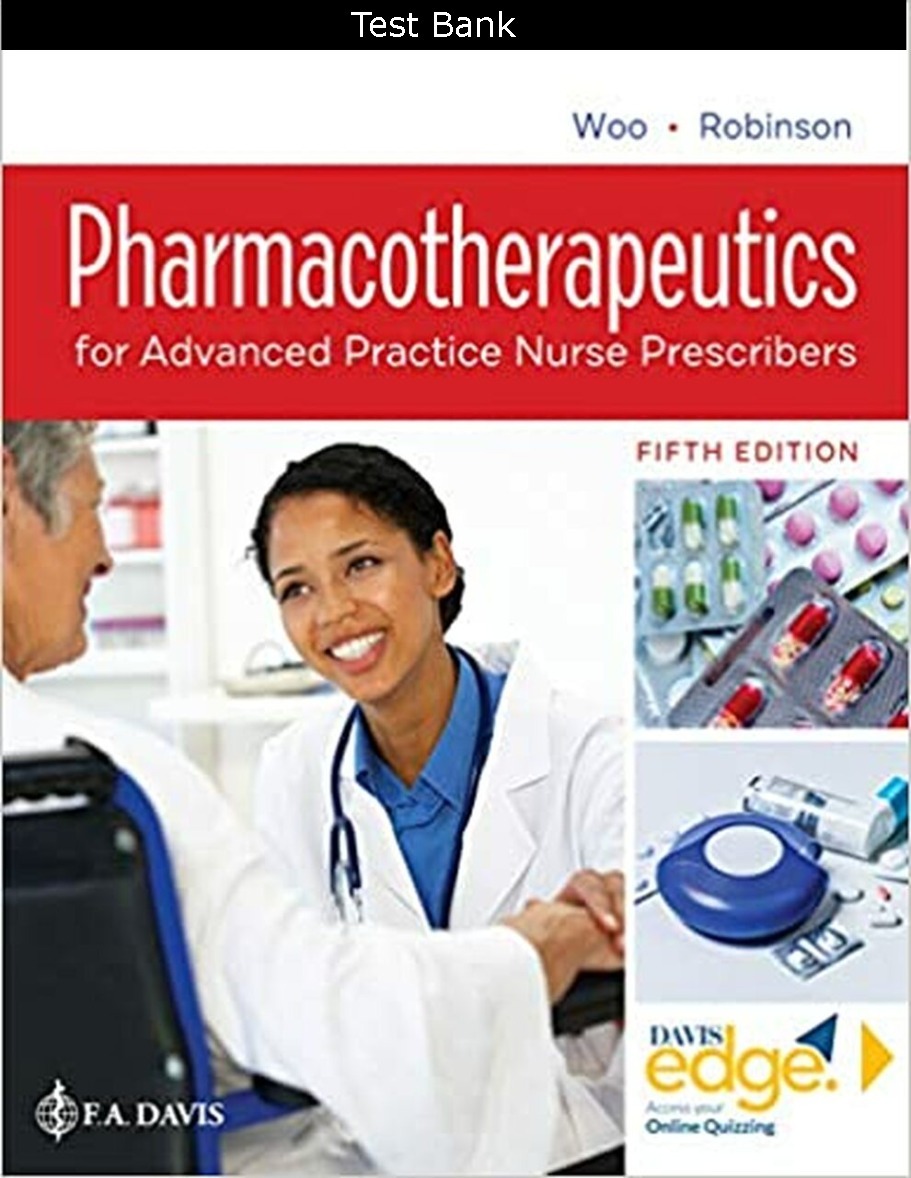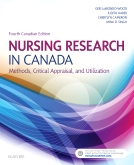In Stock
Pharmacotherapeutics for Advanced Practice Nurse Prescribers Fifth Edition Test Bank
$55.00 Original price was: $55.00.$15.00Current price is: $15.00.
- Digital item No Waiting Time Instant Download
-
ISBN-13: 978-0803669260ISBN-10: 0803669267
- Format : Zip [text]
- Language: English
- Authors: Teri Moser Woo, Marylou V. Robinson
- Publisher: F.A. Davis Company; Fifth edition
SKU: 000786000553
Category: NURSING
Description
Pharmacotherapeutics for Advanced Practice Nurse Prescribers Fifth Edition Test Bank
Table of Contents
1. The Role of the Nurse Practitioner as Prescriber
2. Review of the Basic Principles of Pharmacology
3. Rational Drug Selection
4. Legal and Professional Issues in Prescribing
5. Adverse Drug Reactions
6. An Introduction to Pharmacogenetics
7. Nutrition and Neutraceuticals
8. Herbal Therapies and Cannabis
9. Information Technology and Pharmacotherapeutics
10. Pharmacoeconomics
UNIT II.?PHARMACOTHERAPEUTICS WITH SINGLE DRUGS
11. Drugs Affecting the Autonomic Nervous System
12. Drugs Affecting the Central Nervous System
13. Drugs Affecting the Cardiovascular and Renal Systems
14. Drugs Affecting the Respiratory System
15. Drugs Affecting the Hematological System
16. Drugs Affecting the Immune System
17. Drugs Affecting the Gastrointestinal System
18. Drugs Affecting the Endocrine System: Pancreatic Hormones and Antidiabetic Drugs
19. Drugs Affecting the Endocrine System: Pituitary, Thyroid, and Adrenal Drugs
20. Drugs Affecting the Reproductive System
21. Drugs Affecting the Bones and Joints
22. Drugs Affecting the Integumentary System
23. Drugs Used to Treat Bacterial Infections
24. Drugs Used to Treat Viral, Fungal, and Protozoal Infections
25. Drugs Used to Treat Inflammatory Processes
26. Drugs Used to Treat Eye and Ear Disorders
UNIT III.?PHARMACOTHERAPEUTICS WITH MULTIPLE DRUGS
27. Alcohol and Drug Addiction
28. Anemia
29. Angina
30. Anxiety and Depression
31. Attention Deficit Hyperactivity Disorder
32. Asthma and Chronic Obstructive Pulmonary Disease
33. Contraception
34. Dermatological Conditions
35. Diabetes Management
36. Gastroesophageal Reflux and Peptic Ulcer Disease
37. Headaches
38. Heart Failure
39. Human Immunodeficiency Virus Disease and Acquired Immunodeficiency Syndrome
40. Hormone Replacement Therapy
41. Hyperlipidemia
42. Hypertension
43. Hyperthyroidism and Hypothyroidism
44. Pain Management: Acute and Chronic Pain
45. Pneumonia
46. Tobacco Cessation
47. Sexually Transmitted Diseases and Vaginitis
48. Tuberculosis
49. Upper Respiratory Infection, Pharyngitis, Sinusitis, Otitis Media, and Otitis Externa
50. Urinary Tract Infection
UNIT IV.?SPECIAL DRUG TREATMENT CONSIDERATIONS
51. Women as Patients
52. Men as Patients
53. Pediatric Patients
54. Transgendered Clients as Patients
55. Geriatric Patients
Appendix A: New Drug Development
INDEX
Chapter 1. The Role of the Nurse Practitioner as Prescriber
Multiple Choice
Identify the choice that best completes the statement or answers the question.
- Nurse practitioner prescriptive authority is regulated by:
- The National Council of State Boards of Nursing
- The U.S. Drug Enforcement Administration
- The State Board of Nursing for each state
- The State Board of Pharmacy
- The benefits to the patient of having an Advanced Practice Registered Nurse (APRN) prescriber include:
- Nurses know more about Pharmacology than other prescribers because they take it both in their basic nursing program and in their APRN program.
- Nurses care for the patient from a holistic approach and include the patient in
decision making regarding their care.
- APRNs are less likely to prescribe narcotics and other controlled substances.
- APRNs are able to prescribe independently in all states, whereas a physician’s assistant needs to have a physician supervising their practice.
- Clinical judgment in prescribing includes:
- Factoring in the cost to the patient of the medication prescribed
- Always prescribing the newest medication available for the disease process
- Handing out drug samples to poor patients
- Prescribing all generic medications to cut costs
- Criteria for choosing an effective drug for a disorder include:
- Asking the patient what drug they think would work best for them
- Consulting nationally recognized guidelines for disease management
- Prescribing medications that are available as samples before writing a prescription 4. Following U.S. Drug Enforcement Administration guidelines for prescribing
- Nurse practitioner practice may thrive under health-care reform because of:
- The demonstrated ability of nurse practitioners to control costs and improve patient outcomes
- The fact that nurse practitioners will be able to practice independently
- The fact that nurse practitioners will have full reimbursement under health
care reform
- The ability to shift accountability for Medicaid to the state level
Chapter 1. The Role of the Nurse Practitioner as Prescriber Answer Section
MULTIPLE CHOICE
- ANS: 3 PTS: 1
- ANS: 2 PTS: 1
- ANS: 1 PTS: 1
- ANS: 2 PTS: 1
- ANS: 1 PTS: 1





Be the first to review “Pharmacotherapeutics for Advanced Practice Nurse Prescribers Fifth Edition Test Bank”